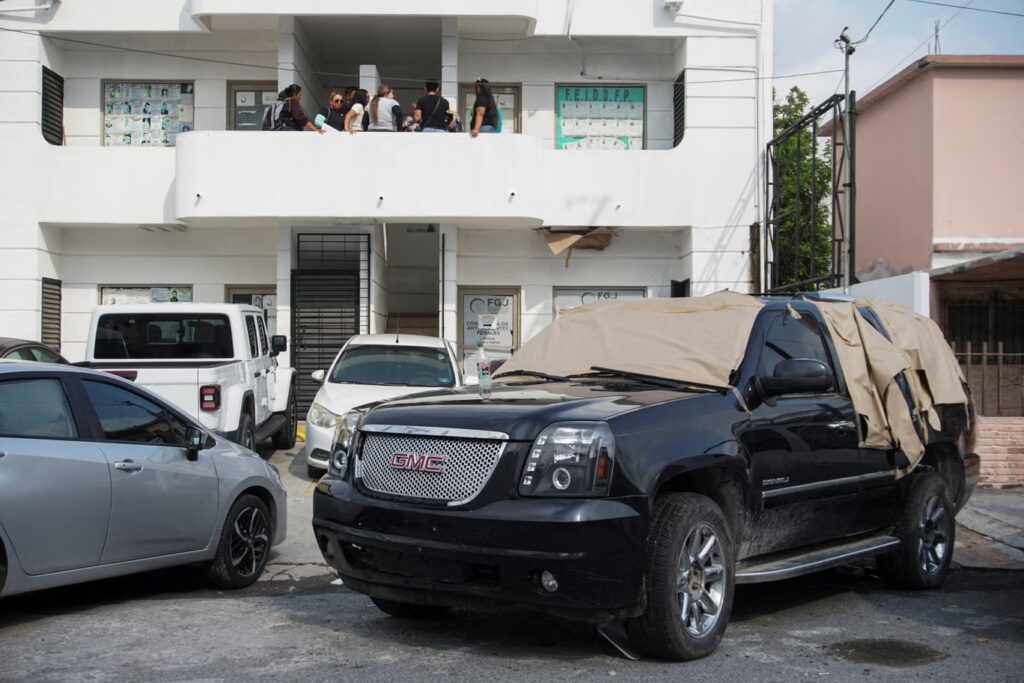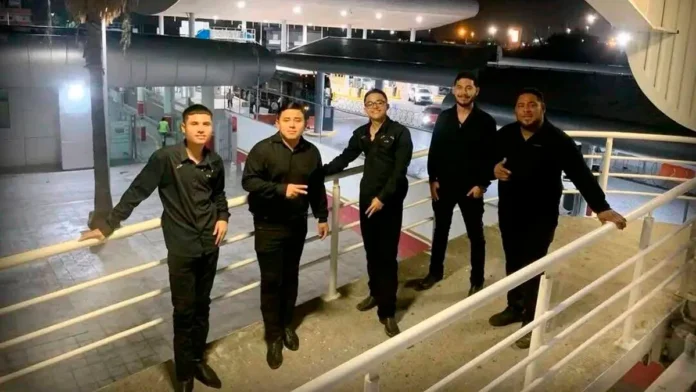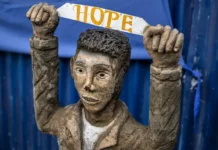Reynosa, Mexico — The bodies of five missing musicians from the regional band Grupo Fugitivo were discovered on the outskirts of Reynosa, Tamaulipas, this week, days after the group vanished en route to a private performance. Authorities have arrested nine suspected members of the Gulf Cartel in connection with the brutal killings, which have reignited concerns over cartel violence targeting artists in Mexico.
The musicians, aged between 20 and 40, disappeared on Sunday night after being hired to play at a supposed event in Reynosa, a city bordering Pharr, Texas. According to relatives, the band arrived to find only an empty lot, prompting alarm when they failed to make further contact. Families later received ransom demands, and their pleas for action led to public protests across the city.
Tamaulipas state prosecutor Irving Barrios confirmed Thursday that the five bodies had been located following a multi-day search, aided by surveillance footage and cellphone tracking data. Investigators believe the men were kidnapped around 10 p.m. while traveling in an SUV. While Barrios did not specify the cause of death, local media reported the bodies may have been burned—claims authorities have not refuted.
“Law enforcement arrested nine individuals considered likely responsible for the events. They are known to be members of a criminal cell of the Gulf Cartel,” Barrios announced during a news conference. He also noted that nine firearms and two vehicles were seized during the operation.

The vehicle belonging to Mexican musical group Grupo Fugitivo is seen outside the Specialized Unit for the Investigation of Forced Disappearances, after Mexican authorities confirmed that five members of the band were found dead, in Reynosa (REUTERS/Stringer)
The killings have shocked the city of Reynosa, which has been plagued by violence linked to organized crime since 2017. Long a battleground between rival factions, the region is a hub for drug trafficking, human smuggling, and fuel theft. Protesters this week blocked the international bridge to Texas and gathered at local churches, demanding justice and an end to impunity.
Grupo Fugitivo was a popular regional band known for performing at local parties and dances. While it remains unclear whether the musicians were targeted for their music or were innocent victims of rampant criminal activity, the case has drawn national attention to the dangers artists face in cartel-dominated areas.
Mexico’s regional music scene, particularly genres like narcocorridos, often intersects with the country’s criminal underworld. These songs, which glorify drug lords and cartel exploits, have gained international popularity but also placed performers at risk. In past incidents, musicians have been killed for their real or perceived affiliations with rival gangs.
In a similar case in 2013, 17 members of the band Kombo Kolombia were murdered in Nuevo León. In 2018, two members of Los Norteños de Río Bravo were found dead in Tamaulipas. Most recently, in January, pamphlets allegedly dropped from a plane threatened more than 20 performers and influencers suspected of links to a warring Sinaloa Cartel faction.
The Mexican government has taken steps to address the controversial influence of narcocorridos. President Claudia Sheinbaum recently launched a national music competition to promote “musical narratives that move away from the glorification of violence.” Several regions have banned such songs outright, though enforcement has led to clashes, including a riot earlier this year when a singer refused to perform banned tracks.
Meanwhile, international scrutiny has also intensified. In April, the U.S. revoked visas for members of Los Alegres del Barranco after they projected the image of a cartel boss during a concert. Authorities in Jalisco have since opened a criminal investigation into whether the band was promoting organized crime.
With over 480,000 people killed and 120,000 missing since 2006 due to cartel-related violence, the deaths of the Grupo Fugitivo musicians add to a growing list of tragedies that highlight the perilous intersection of music, culture, and crime in modern Mexico.
Written By Rodney Mbua



















